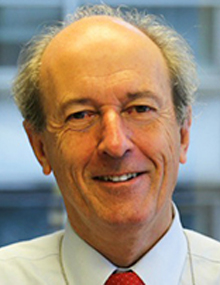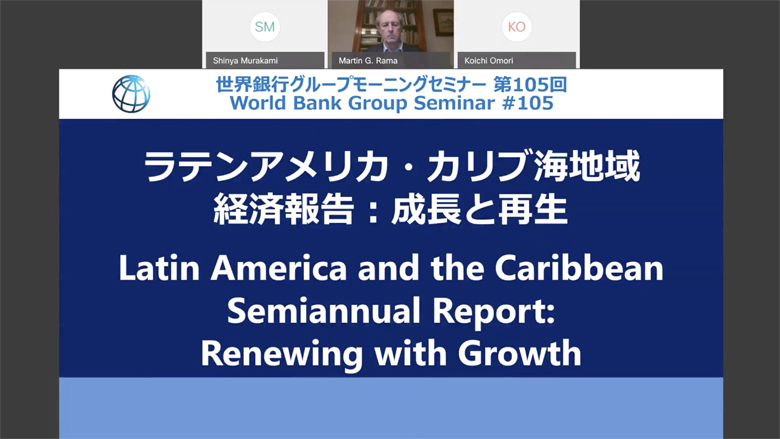Latin America and the Caribbean (LAC) suffered more health and economic damage from the COVID 19 pandemic than any other region, although there is potential for significant transformation in key sectors as the region begins to rebound, according to a new World Bank Report.
Because of the pandemic, Gross Domestic Product (GDP) in the Latin America and Caribbean region (excluding Venezuela) fell 6.7% in 2020. A return to growth of 4.4% is expected in 2021. That compares to the Bank’s late 2020 forecast of a 7.9% GDP decline in 2020, and 4% expansion in 2021.
The immense disruption from the pandemic may lay the groundwork for higher productivity through economic restructuring and digitization. Other growth opportunities stem from innovations in the electricity sector, according to the World Bank LAC Semiannual report Renewing with Growth.
At this seminar, Martin Rama, Chief Economist for Latin America and the Caribbean Region, presented the main points of the report.
Date/Time:
8am-9am, April 30, 2021 (Japan Standard Time)
Speaker:

Chief Economist for Latin America and the Caribbean Region, World Bank
Martín Rama is the World Bank Chief Economist for the Latin America and Caribbean (LAC) region.
Rama’s top priorities are to provide intellectual leadership on development issues facing LAC, to promote high-quality analytical work about the region, and to advisce the regional management team on development issues.
From 2013 to 2018, Rama was the Chief Economist for the South Asia region of the World Bank, based in Delhi, India.
Until October 2012 Rama was the Director of the World Development Report (WDR) 2013, on Jobs. The WDR is the annual flagship report of the World Bank, and an important publication in the area of development economics. The Jobs report built on new research, in-depth case studies and extensive consultations. It led to the compilation of a massive new database of labor indicators across countries.
Over the previous eight years, until 2010, Rama was the Lead Economist for Vietnam, based in Hanoi. In this capacity, he oversaw the World Bank program in the country in areas related to economic policy and poverty reduction. He was also the focal person in the policy dialogue with government in relation to economic reforms, and led a series of annual policy lending operations co-financed by a dozen donors. Between 2007 and 2009, he also served as the acting Country Director for the World Bank in Vietnam.
Prior to moving to World Bank operations, Rama spent ten years with the research department of the World Bank, mainly in Washington DC, while providing support to a large number of developing countries. The main focus of his work was on labor issues. He co-managed a large research program on the impact of labor market policies and institutions on economic performance. He was also responsible for a research initiative on public sector downsizing. His research activities led to numerous publications in academic journals.
Rama gained his Ph.D. in macroeconomics in France in 1985. Back to his home country, Uruguay, he worked in CINVE, the country’s largest think tank, and became one of its directors. In parallel with his World Bank duties, he was visiting professor in development economics at the University of Paris until 2005.
Presentation material: Latin America and the Caribbean Semi annual Report Renewing with Growth (PDF)
